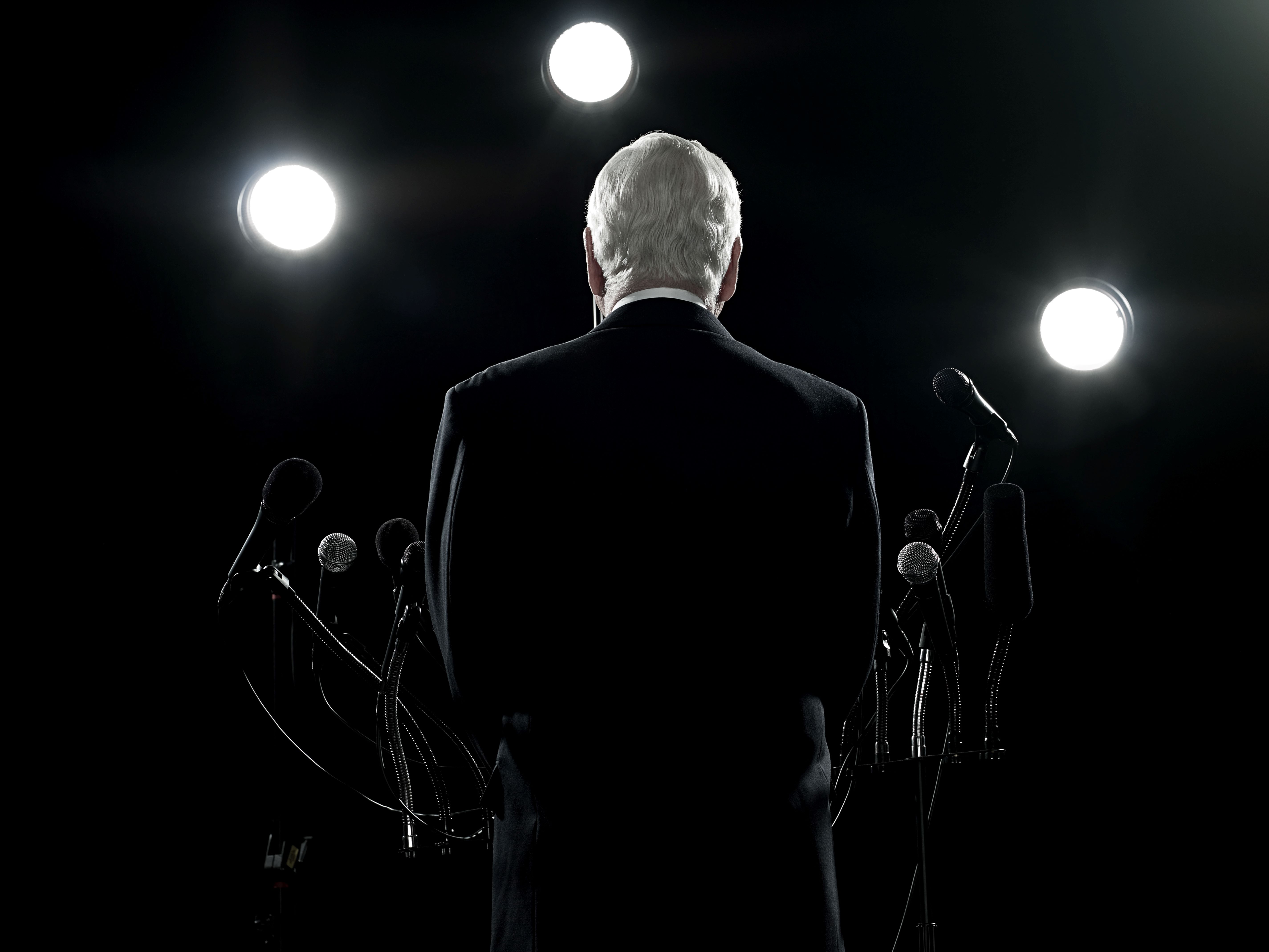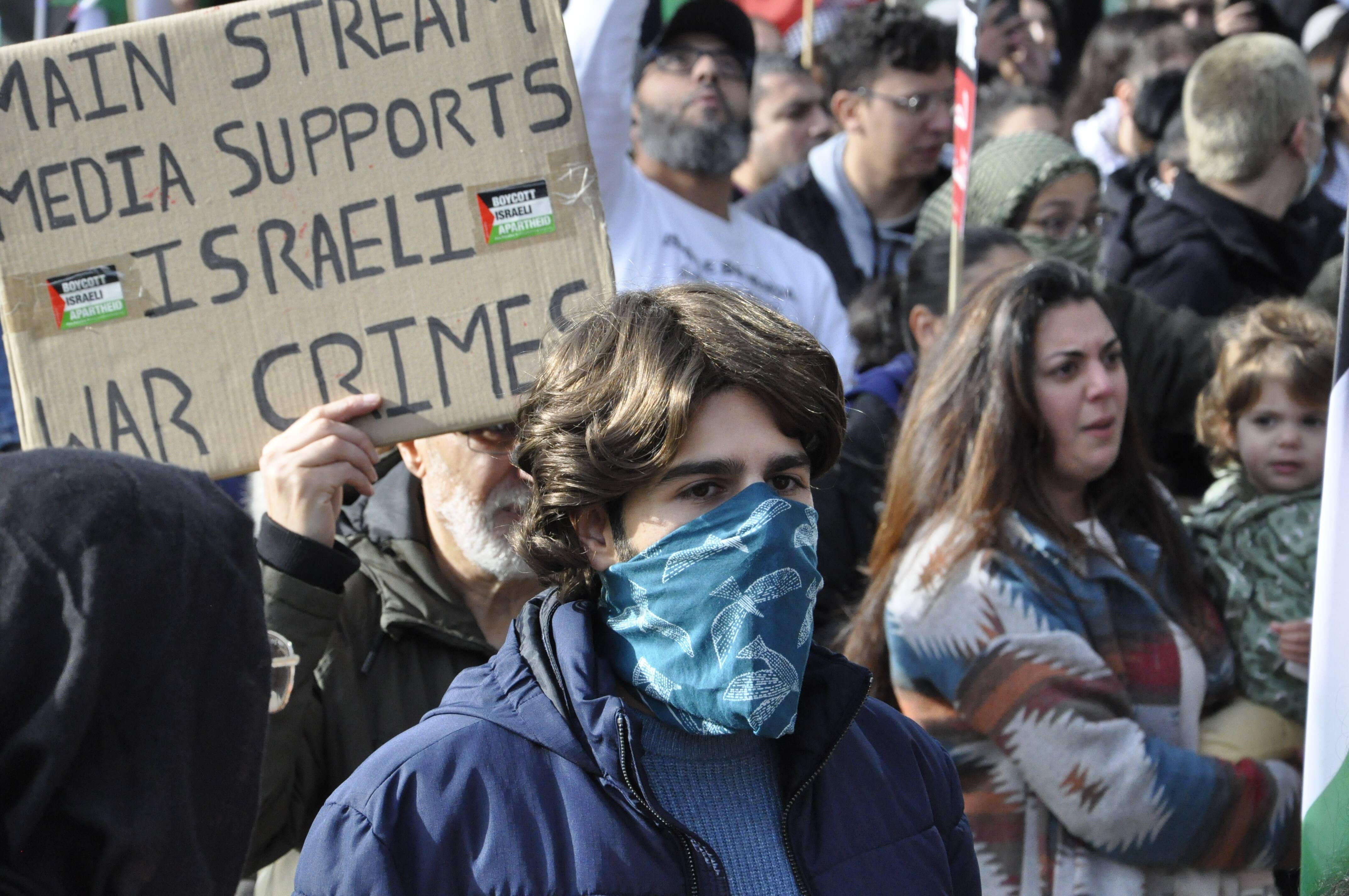مشروع الصحافة والذكاء الاصطناعي تابع لمركز البحوث الصحفية في كلية لندن للاقتصاد والعلوم السياسية ومدعوم من " مبادرة غوغل للأخبار". وبحسب معدّي الاستطلاع فإنه يسعى للتعرف على كيفية تطوير المؤسسات الإخبارية للذكاء الاصطناعي التقليدي، والطرق التي تتبعها حاليا في التعاطي مع التحديات الجديدة للذكاء الصناعي التوليدي.
ووفق الاستطلاع فإن الذكاء الاصطناعي (التقليدي) هو مجموعة من الأفكار والتقنيات والأساليب التي تتعلق بقدرة نظام الكمبيوتر على أداء المهام التي تتطلب عادة ذكاء بشريا. أما الذكاء الصناعي التوليدي فهو حقل فرعي ضمن التعلم الآلي (ML)، وهو حقل فرعي من الذكاء الاصطناعي، ويتضمن إنشاء بيانات جديدة، مثل النصوص أو الصور أو التعليمات البرمجية، بناءً على مجموعة معينة من المدخلات.
ويقول معدو الاستطلاع إن المؤسسات المعنية بصناعة الأخبار في جميع أنحاء العالم منشغلة هذه الأيام بنقاش مستفيض محوره إدماج الذكاء الاصطناعي، مركزا بشكل أساسي على المسائل ذات الصلة بموضوعات الاستدامة ودعم المعايير الخاصة بالصحافة المميزة. ويشمل أيضا المخاوف بشأن قدرة الذكاء الاصطناعي على توليد معلومات مضللة لا يمكن اكتشافها، مما يؤدي إلى تفاقم التمييز وعدم المساواة المجتمعية.
وقد شارك في الاستطلاع 120 من الصحفيين والتقنيين والمديرين الذين يمثلون 105 من المؤسسات الصحفية في 46 دولة (بينها عدد من المؤسسات الإعلامية العربية)، وكان سؤال الاستطلاع الأساسي: ماذا تفعل غرف الأخبار بالذكاء الاصطناعي في الوقت الراهن؟
ويرى معدو الاستطلاع أنه وبغض النظر عن وجهة نظر الناس في الذكاء الاصطناعي، فإن نتائجه تؤكد على أهمية فهم هذه التكنولوجيا التي تعيد تشكيل المشهد الصحفي والتفاعل معها، ويأملون أن يساهم ذلك في التوصل لأفضل الممارسات والإستراتيجيات المفيدة في المجال ومسارات الكفاءة والابتكار.
وترسم النتائج التي خرج بها الاستطلاع المذكور صورة واضحة للمرحلة التي تمر بها وسائل الإعلام حاليا في تعاطيها مع الذكاء الاصطناعي التوليدي.
ويمكن تلخيص أبرز النتائج التي خرج بها الاستطلاع في النقاط التالية:
• 73% من المشاركين في الاستطلاع يعتقدون أن الذكاء الاصطناعي يتيح لوسائل الإعلام فرصا جديدة، ويعزز لديها الكفاءة والإنتاجية والإبداع.
• أفاد 85% من المشاركين بأنهم خاضوا تجربة الاستفادة من إمكانيات الذكاء الاصطناعي التوليدي في مجالات: كتابة ملخصات وعناوين الموضوعات الصحفية.
• أعرب أكثر من 60% من المستطلعين عن مخاوفهم من الآثار الأخلاقية للذكاء الاصطناعي التوليدي على جودة التحرير والجوانب الأخرى للعمل الصحفي.
• هناك عدم تساو في استخدام الذكاء الاصطناعي التوليدي بين غرف الأخبار الصغيرة وتلك الكبيرة، وكذلك على المستوى الإقليمي بين دول الجنوب (الدول النامية) ودول الشمال (الدول المتقدمة).
• تتركز الفوائد الاجتماعية والاقتصادية للذكاء الاصطناعي جغرافيا في دول الشمال، التي تتمتع بالبنية التحتية والموارد، في حين أن العديد من دول الجنوب ما تزال منشغلة بالتداعيات الاجتماعية والثقافية والاقتصادية بما يعرف ب"استعمار ما بعد الاستقلال".
• أكثر من 75% من المشاركين في الاستطلاع يستخدمون الذكاء الاصطناعي التوليدي في مجال واحد على الأقل من مجالات جمع الأخبار وإنتاجها وتوزيعها.
• أفاد أكثر من نصف المشاركين بأن الدافع الرئيسي لديهم لإدماج الذكاء الاصطناعي هو زيادة الكفاءة والإنتاجية بهدف منح الصحفيين وقتا لمزيد من العمل الإبداعي.
• أفاد حوالي ثلث المشاركين بأن لديهم إستراتيجية مؤسسية للذكاء الاصطناعي، أو أنهم يعكفون حاليا على تطوير واحدة.
• لدى غرف الأخبار مجموعة واسعة من الأساليب فيما يخص إستراتيجية الذكاء الاصطناعي، وذلك اعتمادا: على الحجم، المهمة، والموارد، فالتي تبنت الذكاء الاصطناعي منذ وقت تركز في الوقت الراهن على تحقيق قابلية التشغيل البيني للذكاء الاصطناعي مع الأنظمة الحالية، بينما يعتمد البعض الآخر نهجا لكل حالة على حدة. وفي هذا السياق تعمل بعض منظمات تطوير وسائل الإعلام على بناء قدرات الذكاء الاصطناعي في المناطق ذات المعرفة المنخفضة به.
• يعتقد حوالي ثلث المشاركين أن مؤسساتهم مستعدة للتعامل مع تحديات اعتماد الذكاء الاصطناعي في الصحافة، في حين أفاد نصفهم تقريبا بأنها مستعدة جزئيا.
• يرى العديد من المشاركين في الاستطلاع أن إدماج الذكاء الاصطناعي يغير الأدوار الحالية داخل غرف الأخبار، وذلك من خلال التدريب وصقل المهارات، وعلى نفس المنوال، يعمل الذكاء الاصطناعي على تغيير طبيعة دور الصحفي ومهاراته.
• وبحسب ما جاء في تقرير المشروع المشابه في عام 2019، لا تزال القيود المالية والصعوبات الفنية تمثل التحديات الأكثر إلحاحا فيما يتصل بدمج تقنيات الذكاء الاصطناعي في غرفة الأخبار.
• لا تزال المخاوف الأخلاقية تمثل جانبا مهما بالنسبة للمشاركين في الاستطلاع، ويدافع الكثيرين منهم عما سموه الذكاء الاصطناعي القابل للتفسير ووضع مبادئ توجيهية أخلاقية للتخفيف من التحيز القائم على الخوارزميات.
• وضع تقنيات لإزالة تحيز الذكاء الاصطناعي بدا مجالا صعبا للغاية لمعظم المشاركين في الاستطلاع.
• أظهر الاستطلاع وجود مؤشرات لمقاومة ثقافية ومخاوف من فقدان الوظائف وتشكيك في تقنيات الذكاء الاصطناعي.
• أشار المشاركون في الاستطلاع إلى أن التخفيف من تحديات إدماج الذكاء الاصطناعي يتطلب سد الفجوات المعرفية بين الفرق المختلفة في غرف الأخبار، وبالمثل، كان يُنظر إلى التعاون بين الأقسام على أنه ضروري لتحقيق التبني الفعال للذكاء لاصطناعي.
• التحدي الخاص بمواكبة التطور السريع للذكاء الاصطناعي تمت الإشارة إليه من جميع المشاركين بالاستطلاع.
• أفاد حوالي 40% من المشاركين في الاستطلاع أن نهجهم تجاه الذكاء الاصطناعي لم يتغير خلال السنوات القليلة الماضية، إما لأنهم ما زالوا في بداية رحلة الذكاء الاصطناعي الخاصة بهم، أو لأن إدماج الذكاء الاصطناعي ما يزال محدودا في غرف الأخبار التي يعملون بها، وفي المقابل قال حوالي ربع المشاركين في الاستطلاع إن نهج مؤسساتهم تجاه الذكاء الاصطناعي قد تطور وأنهم قد اكتسبوا خبرة عملية مما يساعدهم على التفكير بشكل أكثر واقعية حول الذكاء الاصطناعي.
• دعا المشاركون إلى ضرورة توفر الشفافية من جانب مصممي أنظمة الذكاء الاصطناعي وشركات التكنولوجيا، والمستخدمين، أي غرف الأخبار.
• واصل الصحفيون والعاملون في مجال الإعلام التأكيد على الحاجة إلى ضرورة وجود عنصر بشري في عمليات الإدماج، وذلك تماشيا مع النتائج التي توصل إليها مشروع "الصحافة والذكاء الاصطناعي" في استطلاعه لعام 2019.
• ثمة مخاوف من قبل العديد من المشاركين من أن تقنيات الذكاء الاصطناعي يمكن أن تزيد مما يعرف بالصحافة التجارية، مما يعزز من المحتوى الرديء والاستقطابي، ويؤدي إلى مزيد من التراجع في ثقة الجمهور في الصحافة.
• أعرب المشاركون في الاستطلاع عن مخاوفهم من طبيعة شركات التقنية التي تقود الابتكار في مجال الذكاء الاصطناعي والتقنيات الأخرى، والتي يحركها الربح، والتي تسعى لتركيز السلطة وتفتقر إلى الشفافية.
• يتوقع حوالي 80% من المشاركين دورا أكبر للذكاء الاصطناعي في المستقبل داخل غرف الأخبار التي يعملون بها.
هناك عدم تساو في استخدام الذكاء الاصطناعي التوليدي بين غرف الأخبار الصغيرة وتلك الكبيرة، وكذلك على المستوى الإقليمي بين دول الجنوب (الدول النامية) ودول الشمال (الدول المتقدمة).
يتوقع المشاركون في الاستطلاع أن يؤثر الذكاء الاصطناعي على أربعة مجالات رئيسية:
1- تدقيق الحقائق وتحليل المعلومات المضللة
2- أتمتة وتخصيص المحتوى.
3- تلخيص النص.
4- استخدام روبوتات الدردشة لإجراء المقابلات الأولية وقياس مشاعر الجمهور في بعض القضايا.
• هناك مخاوف من أن يؤدي الذكاء الاصطناعي إلى تفاقم ما يعرف بتحديات الاستدامة لدى غرف الأخبار ذات الموارد الأقل والتي تكافح للوقوف على قدميها، في ظل عالم يتجه بقوة نحو الرقمنة، وصناعة تعتمد على الذكاء الاصطناعي بشكل متزايد.
• أكد ما يقرب من 43% من المشاركين على أهمية تدريب الصحفيين وغيرهم من العاملين في المجال، والعمل على محو أمية الذكاء الاصطناعي والمهارات الجديدة الأخرى مثل الهندسة الفورية.
• رحبت الغالبية العظمى من المشاركين بمزيد من التعاون بين غرف الأخبار والمؤسسات الإعلامية والمؤسسات الأكاديمية، على أمل أن يساهم ذلك في تقليل ظاهرة التفاوت بين غرف الأخبار الصغيرة والكبيرة، وعلى المستوى الإقليمي بين غرف الأخبار في دول الشمال ودول الجنوب.
• تظل الحاجة إلى تحقيق التوازن بين التكنولوجيا والصحافة - وهو الموضوع الذي برز أيضا في استطلاع المشروع لعام 2019- أمرا ضروريا لمستقبل تتم فيه الاستفادة من تقنيات الذكاء الاصطناعي لخدمة الصحافة ورسالتها.
• أفادت الغالبية العظمى من المشاركين أي حوالي 85% بأنهم قاموا تجربة تقنيات الذكاء الاصطناعي بعدة طرق مثل كتابة التعليمات البرمجية والحصول على الصور، وكتابة الملخصات.
ثمة مخاوف من قبل العديد من المشاركين من أن تقنيات الذكاء الاصطناعي يمكن أن تزيد مما يعرف بالصحافة التجارية، مما يعزز من المحتوى الرديء والاستقطابي، ويؤدي إلى مزيد من التراجع في ثقة الجمهور في الصحافة.
• يتخوف بعض المشاركين في الاستطلاع من استخدام الذكاء الاصطناعي في المهام التحريرية، بينما يستخدمه آخرون بانتظام في الترميز، وكتابة العناوين، وتحسين محركات البحث.
• كان هناك مستوى عال من الاتفاق - بين المشاركين في الاستطلاع - على أن الذكاء الاصطناعي التوليدي يطرح مجموعة جديدة من الفرص التي لا يوفرها الذكاء الاصطناعي التقليدي، مثل إمكانية الوصول، وسهولة التعامل.
• تواجه غرف الأخبار على مستوى العالم التحديات المتعلقة بإدماج الذكاء الاصطناعي، ولكن هذه التحديات تبدو أكثر وضوحا بالنسبة لغرف الأخبار في دول الجنوب، وقد أشار المشاركون في الاستطلاع إلى التحديات المتصلة باللغة والبنية التحتية والقيود السياسية.
























![A demonstration against Israel's war on Gaza on Paulista Avenue in São Paulo on November 4, 2023, draws attention to the deaths of children while the media focuses on the war against terrorists. [Photo: Lina Bakr]](/sites/default/files/ajr/2024/Picture1.png)

















